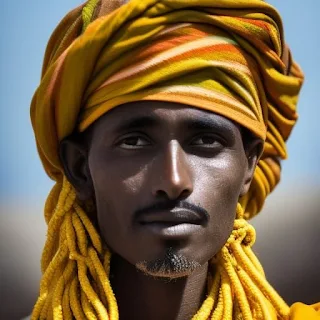In West Africa, last names have cultural, historical, and familial significance, similar to last names in the United States and other parts of the world.
Knowing your last name is fundamental to understanding who you are, where you come from, and the cultural and historical context that shapes your identity. It contributes to a sense of individuality, connection, and continuity within the larger human experience.Common last names from West African countries and a brief description of their meanings.
Keita
The name Keita is associated with the Mandinka people, who were a prominent ethnic group within the Mali Empire. The founder of the Mali Empire, Sundiata Keita, belonged to this ethnic group. The name Keita is derived from the Mandinka word keitafa, which means heritage or inheritor.
Diop
Diop is a common surname among the Wolof and other ethnic groups in Senegal and Mali. It is often associated with the concept of being an ancestor or descendant.
Touré
Touré is a widespread surname among the Soninke, Mandinka, and other ethnic groups. It signifies noble or aristocratic lineage and can also imply leadership and responsibility.
Diallo
Diallo is a surname found among the Fulani (Peul) and other ethnic groups. It is thought to mean bold or brave and can reflect the character traits of the individual or family.
N'Diaye
N'Diaye is often associated with the concept of second-born or junior and is common among the Wolof and Mandinka people.
Kouyaté
Kouyaté is a surname associated with griots, who are traditional storytellers, historians, and musicians. It often indicates a family's hereditary role in preserving and transmitting oral history.
Ouattara
Ouattara is a surname commonly found among the Akan people, particularly in Ivory Coast. Its meaning varies, but it can refer to a powerful or respected lineage.
Kane
Kane is a widespread surname among the Fulani and other groups. Its meaning can include blacksmith or smith, reflecting traditional occupations.
Camara
Camara is a common surname among Malinke and other groups. Its origins can be traced back to the Arabic word for secretary or scribe.
Importance of knowing the meaning of your last name.
Like last names in the United States, West African last names carry familial and cultural significance, indicating ancestry, clan affiliation, occupation, and identity. Like in the U.S., last names in West Africa help establish a sense of belonging, heritage, and connection within communities.
Knowing your last name is like a missing puzzle that helps you understand who you are and where you belong. Learning your last name connects you to your roots, your family's past, and the traditions that have been passed down through generations.
It's like discovering a piece of your own story within the larger tapestry of human history. Having a last name gives you a sense of identity, makes you feel more connected to others, and helps you carry forward your family's legacy. It's pretty amazing how something as simple as a name can hold so much meaning and significance.



























